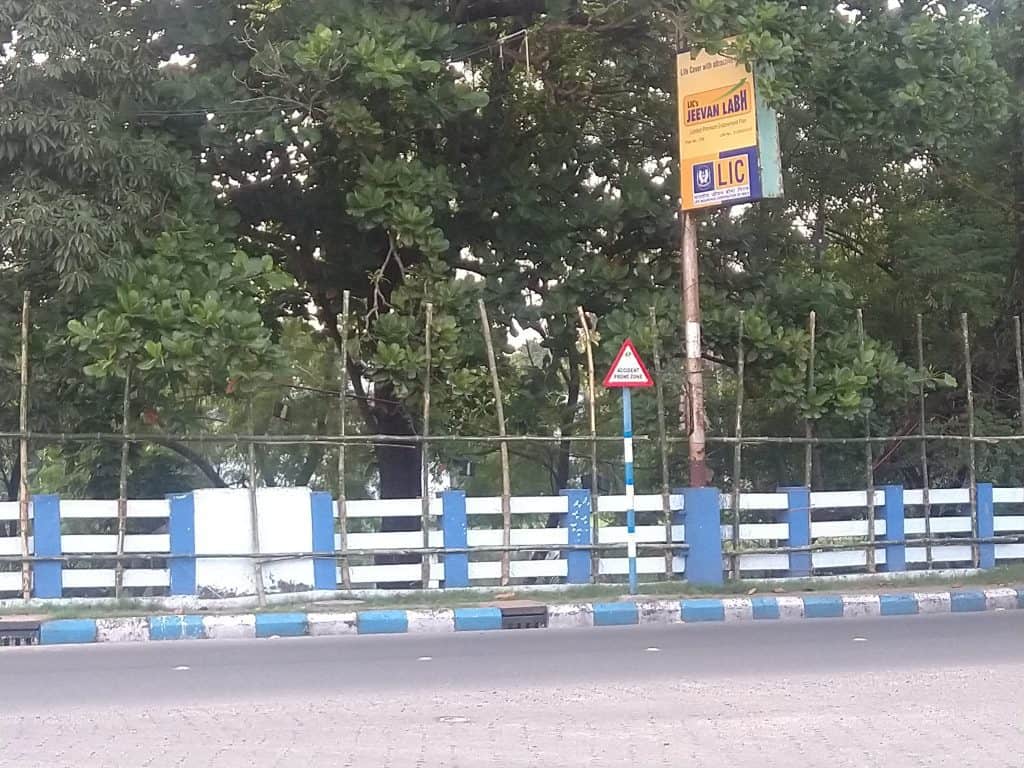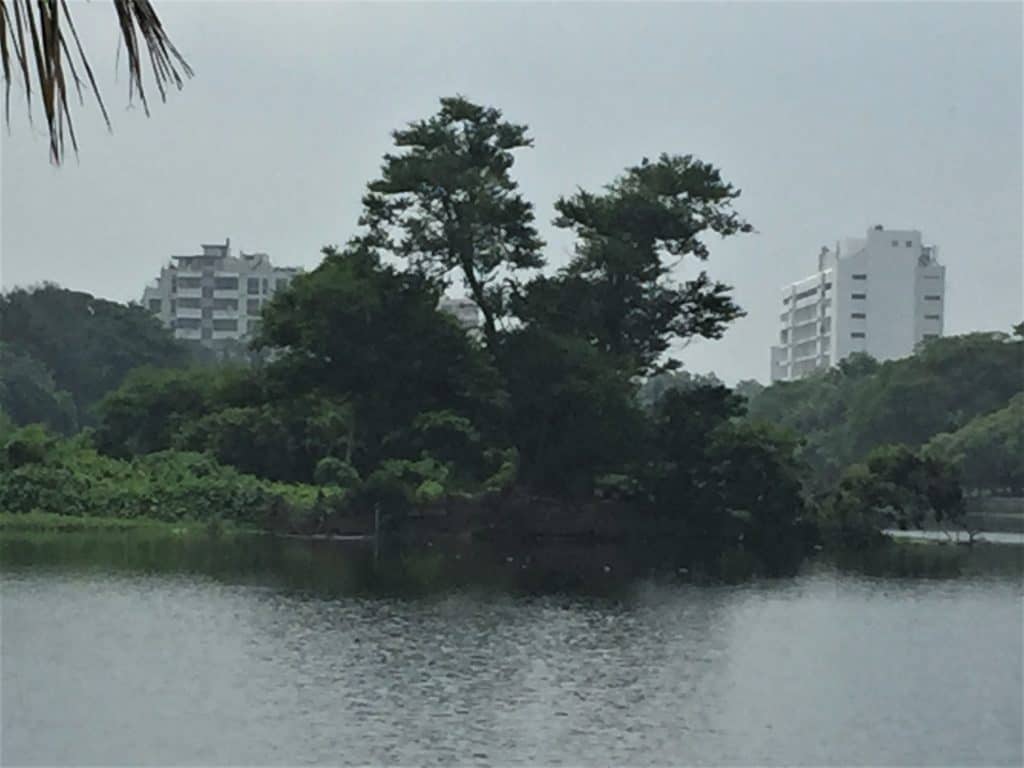Following a strict order from the National Green Tribunal (NGT), the Kolkata Metropolitan Development Authority (KMDA), custodian of the Rabindra Sarovar Lake in Kolkata has taken several steps to ensure that Chhat Puja is not held in the lake premises this year and its biodiversity is protected. As a result, for the second time in the history of its existence, Rabindra Sarovar will remain closed on November 2 and will open on November 3 after 11 AM. The only other time that the lake was completely closed down was during the Aila Storm in 2009.
Spread over 192 acres, Rabindra Sarovar, also known as Dhakuria Lake, is an artificial lake in South Kolkata and enjoys the status of a ‘National Lake’. The lake ecosystem plays a key role in maintaining the oxygen balance of the Kolkata metropolis by generating fresh oxygen. It is a tourist hub and attracts morning walkers, bird watchers, families, rowing enthusiasts and green lovers in and around Kolkata.
An NGT order dated November 15, 2017 banned all festivities in and around Rabindra Sarovar. However, the order was completely violated during the Chhat celebrations of 2018 when over 40,000 people entered the Lake and offered puja. On October 14, 2019 the NGT directed the government of West Bengal to ensure that there was no violation of its 2017 order banning any ritual for Chhat puja or other religious festivals at the site.
Steps taken by KMDA
To begin with KMDA has decided to lock all the 15 gates of Rabindra Sarovar. It has also installed gates in places which did not have one; the peripheral guarding walls in certain areas have been reconstructed or made higher. All the gates of Rabindra Sarovar will remain closed from 11 am on November 2nd till 11 on the following day. KMDA has also asked for adequate police deployment in the area to take care of the law and order situation. Temporary barriers are being constructed along the Lake Gardens flyover, just adjacent to the lake premises, so that people cannot jump in.

Temporary barriers made of bamboo and tin are being erected so that Chhat devotees cannot jump into the Lake premises. Pic: Mou Chakraborty
KMDA has also made alternative provisions for offering Chhat Puja. “Fifteen water bodies across South Kolkata have been identified as alternative Chhat Puja venue. We are offering buses to ferry people, keeping arrangements for bio toilets, drinking water, lifesaving divers and basic security in all locations. Adequate infrastructure support including construction of ghats (steps leading to water) and lighting arrangements are being undertaken,” informed Antara Acharjee, CEO of KMDA.
The KMDA hopes that devotees from South Kolkata will cooperate and not try to invade the Rabindra Sarovar. “We are in the process of putting up hoardings to educate people. KMDA is following the NGT order and will not allow any illegal activity in the lake area. But despite all the measures, if people do not change their outlook and insist on coming, it becomes very difficult for us. Last year they had entered forcefully. This year we are taking the help of police and RPF (Railway Protection Force) to stop intruders,” Acharjee added.
The circular railway line between Lake Gardens and Tollygunje area, which borders Rabindra Sarovar, has porous borders but the RPF says it has limitations on what it can do. “The RPF has received a request from KMDA and they are working hard to ensure all cooperation. We must not forget that the RPF has the mandate to protect railway property, which they will do, but while trying to stop trespassing, if any law and order situation arises the police has to take care of it,” said Nikhil Chakraborty, CPRO, Eastern Railway.
What lake lovers think
“Last year too there was a ban, but after midnight the local political leaders erected floodlights on bamboo poles. Soon over 30,000 people flooded the place dancing to loud DJ music, littered the place, threw plastic in the lake, burst crackers and devastated the area before leaving. This year KMDA held a meeting with all the stake holders and everyone has agreed to follow the NGT order. Also, a lot of security measures are being taken, but I am still skeptical,” says Sumita Banerjee, a member of the Lake Lovers’ Forum, who after the 2018 Chhat puja made a contempt plea against the blatant violation of the NGT order.
Explaining why Chhat puja is dangerous for the ecology of Rabindra Sarovar green technologist and environment activist Somendra Mohan Ghosh said, “Out of 30,000 people coming for Chhat Puja even if 5000 float diyas in the lake and each diya has 10ml oil, then they end up pouring 50 litres of oil in the lake, which is dangerous for the marine ecology. The high power floodlights disturbs birds and nocturnal animals in the area. Last year, the place became an open urinal and garbage dumpyard – waste, mostly plastic waste, was littered all across. Last year 50 lakh saplings had been planted in the area, the Chhat revellers destroyed over 50% of it.”
Ghosh also reminds us that Chhat puja is almost immediately followed by the onset of winter. The lake takes another six months’ time to get rid of the suspended particles in the air. Bad air quality, in turn, takes a toll on oxygen production in the lake, affecting public health and the death of marine creatures. “The problem would not have been so severe, if two layers of the lake had been desilted as directed by the NGT order,” Ghosh explained.
“Over 10,000 people come to Rabindra Sarovar for morning walk every day. Earlier this place used to have frogs and turtles. But now they are gone. There were over 100 ducks and swans here, they too have been stolen. When compared to Maidan, the ambient air quality in the lake area is three times better. This is the lung of the city. Everyone should acknowledge this and save the ecology of this place,” said Ghosh.
A tough road ahead
In order to stop Chhat puja, KMDA held a meeting with all the stakeholders on September 20th. On September 23rd, Dudhkumar Nashkar, one of the 40 security guards at Rabindra Sarovar, illegally opened the gates for 600 people to perform Dwitiya Puja and was suspended for four days
Though the Bihari Samaj representative at the meeting had agreed to shift the venue of Chhat puja from Rabindra Sarovar, not many within the community feel the same way. “What will they do? They cannot stop us. My family has 46 votes. How many votes do the people of those trying to stop this have? Last year, too, we heard about the ban, but at the last minute things turned in our favour. This year, too, will not be an exception,” said Bharat Singh, a cab driver and Chhat devotee residing in Kolkata.
The social clubs and sports clubs around Rabindra Sarovar claim to be doing their bit. The managing committee of Lions Safari Park, a citizens’ park inside the Sarovar, has moved their Diwali get-together out of the premises. A Durga Puja organized by the Indian Life Saving Society (ILSS) at their club, located inside the lake area, was not organized this year.
“For over 15 years now, our club members organize Durga Puja in the club premises. It is something everyone looks forward to. Last year, we had shifted it indoors so that the puja does not create any noise pollution or disturb the green habitat. But this year, with a heavy heart we had to discontinue it as we failed to get a NoC from KMDA,” said Arijit Kumar, committee member of ILSS, popularly known among citizens as Anderson Club, “This Lake is very close to our heart. We are a social club and would not do anything that flouts the law of the land or disturbs the ecology of the lake. Our members swim in the lake and we conduct advanced life-saving training here. We hope that the rule is followed strictly for every community and every member of the society.”
Till 2015, Durga idol immersion was allowed in the Lake but that has stopped after the NGT and Calcutta High Court dubbed it illegal. “We hope that the Chhat Puja devotes will also understand the environmental concerns. We are also concerned about a mosque on an island inside the lake. They have already encroached 7 feet of the lake by throwing cement and sand, and have constructed toilets that drain into the waters. Hope the NGT will take note,” said Banerjee.
